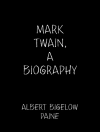At first glance, Jonathan Meades’s 1993 masterpiece is a post-war family saga set in and around the city of Portsmouth. This doesn’t come close to communicating the scabrous magnificence of Meades’s creation.
Pompey is an obscene, suppurating vision of an England in terminal decline. The story begins with Guy Vallender, a fireworks manufacturer from Portsmouth, who has four children by different four different women. There’s Poor Eddie, a feeble geek with a gift for healing; ‘Mad Bantu’, the son of a black prostitute, who was hopelessly damaged in the womb by an attempted abortion; Bonnie, who is born beautiful but becomes a junkie and a porn star; and finally Jean-Marie, a leather-wearing gay gerontophiliac conceived on a one-night stand in Belgium.
The narrator is ‘Jonathan Meades’, cousin to Poor Eddie and Bonnie, who tells the story of how their strange and poisonous destinies intersect. And although there is no richer stew of perversity, voyeurism, corruption, religious extremism and curdled celebrity in all of English literature, there is also an underlying compassion and a jet-black humour which makes Pompey an important and strangely satisfying work of art. Prepare to enter the English novel’s darkest ride…
Про автора
Jonathan Meades is a writer, journalist, essayist and film-maker. His books include three works of fiction – Filthy English, Pompey and The Fowler Family Business – and several collections including Museum Without Walls, which received thirteen nominations as a book of the year in 2012. An Encyclopaedia of Myself was shortlisted for the PEN Ackerley Prize and longlisted for the Samuel Johnson Prize in 2014. His first and only cookbook, The Plagiarist in the Kitchen, was published in 2017.
Meades has written and performed in more than sixty highly acclaimed television films on predominantly topographical subjects such as shacks, garden cities, megastructures, buildings associated with vertigo, beer, pigs, and the architecture of Hitler, Stalin, Mussolini and Franco. He also creates artknacks and treyfs. Treyf means impure, not kosher: it sums up his approach to all writing, film and art.












